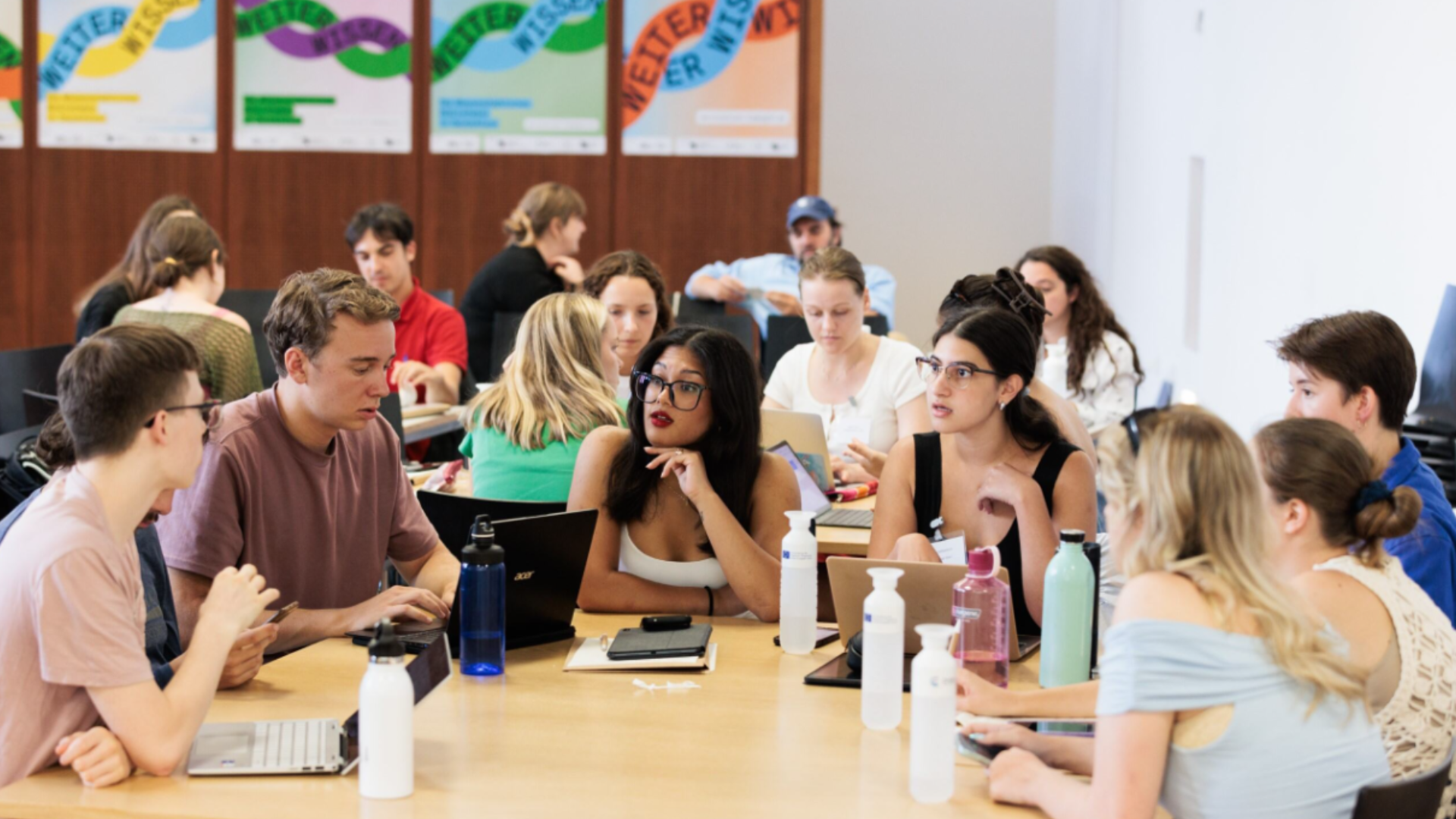Circle U. Summer Schools
Every year, Circle U., the European alliance to which UPCité belongs, organises summer schools. Students from Université Paris Cité can strengthen their CVs while discovering one of the alliance’s partner universities as part of a short mobility programme.

Circle U. European University Alliance: Université Paris Cité, Humboldt-Universität zu Berlin, King’s College, London, UCLouvain, University of Oslo, Aarhus University, University of Belgrade, Université of Pisa and Université of Vienna.
Main topics
Circle U. summer schools lead the way in innovative interdisciplinary courses addressing key societal challenges; global health, climate change and democracy.
Through theoretical input, practical exercises and collaborative projects, each programme encourages creativity, critical thinking and inter-university exchange. Whatever the theme, Circle U. summer schools are also a great opportunity to expand your network and join a dynamic European community.
Student perspective on the summer schools
Ruyue Deng, a doctoral student at Université Paris Cité, said after taking part in a summer school:
‘The courses and workshops provided me with practical tools to address some of the methodological challenges I face in my work […] The interactions with other PhD students and post-doctoral researchers from other backgrounds were particularly enriching.’
The Global Health Summer School at Université Paris Cité
Université Paris Cité is responsible for organising the Global Health Summer School. Through a combination of lectures, active learning, group work and dilemma-based approaches, participants tackle a wide range of topics such as inequalities in health and health care, health inequalities, health inequalities and health inequalities, health inequalities and health inequalities, health inequalities and health inequalities.
Applying for a summer school
Calls for applications for Circle U. summer schools are launched every year between January and February.
For more information on how to apply, visit this page.
The applicants selected will be eligible for a mobility scholarship provided that they meet the university’s social criteria.
The application form to apply for this scholarship will be sent to you by the Circle U. team.
For more information
Visit the Circle U. Website
On social Media
Subscribe to Circle U. newsletter
Contact Université Paris Cité

Read more
![[Circle U.] Internationalise your study plan without leaving home!](https://u-paris.fr/wp-content/uploads/2025/04/OPEN-CAMPUS-CIRCLE-U-1080x675.jpg)
[Circle U.] Internationalise your study plan without leaving home!
In an increasingly fast-paced and demanding world, developing new skills and gaining international experience are essential for strengthening your applications and easing your entry into the job market. The European alliance Circle U., of which our university is a...
read more![[Call for Applications – Circle U.] Entrepreneurial Change-making programme](https://u-paris.fr/wp-content/uploads/2025/06/change-making-2024.jpg)
[Call for Applications – Circle U.] Entrepreneurial Change-making programme
Keen to lead a meaningful project? Want to collaborate with other young people from across Europe to help shift practices? The Entrepreneurship for Change programme by the Circle U. European university alliance – of which we are a member – is back this November with a...
read more![[Circle U.] Immersion in the heart of the climate – virtual exhibition](https://u-paris.fr/wp-content/uploads/2025/05/La-France-en-2100-1080x675.jpg)
[Circle U.] Immersion in the heart of the climate – virtual exhibition
Circle U. the european alliance invites you to discover how its community sees the climate change. Through a photographic exhibition, the alliance invites you to take a virtual journey to the heart of our planet, to admire its beauty but also to become...
read more![[Circle U.] Seed funding scheme 2025](https://u-paris.fr/wp-content/uploads/2025/05/Fond-damorçage-Circle-U-1080x675.png)
[Circle U.] Seed funding scheme 2025
Each year, the Circle U. European alliance, of which Université Paris Cité is a member, launches a call for projects as part of its seed funding programme. Do you have a project that aims to strenghten international collaboration and drive bottom-up initiatives?...
read more